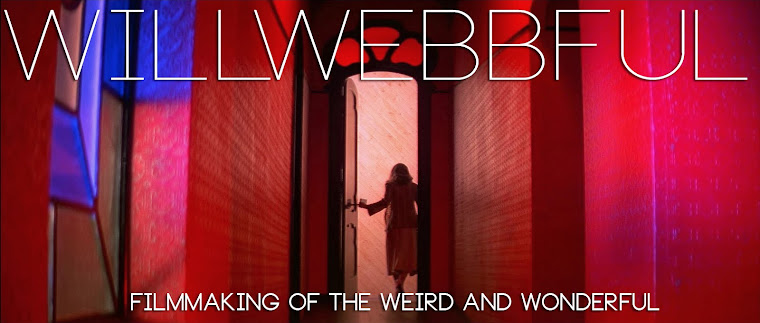Hi there blog readers.
Because I'm a film-maker at heart and because I find talking easier than writing, a lot of my posts will have some video element, many of which will be my film reviews. To give some background: about a year ago, I decided to try to watch and review 100 films in the year. I failed, rather abysmally, but did watch more- and a wider variety- than I had before. It was a great little experiment, and one I hope to finish now that University is over and done with.
Every ten reviews, I'd post a longer one- some special analysis. These tended to get more views, just about, and were often a little more fun to make: time to get right into the core of what I was watching. I also tried to respond to significant movies, and so my first choice was The Shawshank Redemption; it's that movie that people always say is their favourite film, and I'd never seen it, so I wanted to watch and understand why it's seen as so significant. Here's my thoughts (more after the video):
I guess I feel like it was great, and truly inspiring, but not particularly important as a film. I'll break down that claim a little further:
- It's a great film. You can't deny the film-making skills of Frank Darabont: the man knows his story through and through, punctuates it with excellent, concise character beats, and tiny but beautiful flourishes of detail. Every frame is precisely composed, every shot justified.
- It's truly inspiring as a story. Shawshank is, in the most focussed way possible, entirely about the inherent freedom of the human spirit in the face of adversity. This is something that should speak to everyone! It's definitely something I'd like to make movies about.
- It's not an important film. All said and done, and taking into account what I've said about the film, it should be clear I mean no disrespect to this movie. But it breaks no new ground whatsoever. It didn't contribute new technology to cinematic production, it didn't contribute new phrasing to cinematic language, and it didn't push the envelope as far as structure or editing is concerned.
Of course, you say this about Shawshank and everyone loses their minds. "But it's so inspiring!" Yes, absolutely. "But it's so well made!" I appreciate that entirely. But that doesn't make it important as a film. Let's go for another, perhaps less controversial example.
Have you seen The Railway Children? It's a 70s adaptation of the novel, starring Jenny Agutter. I love this movie to bits. I think it's very well made and the story is wonderful. Certainly, it's very special to me; but this isn't enough to make it important or significant as a film. The Railway Children, despite its soft focus and lovely dolly-work and heartfelt performances, didn't contribute much to cinema. For that reason, despite my own feelings on it, you've got to admit: it shouldn't be held aloft in the history of cinema.
Great films- like The Shawshank Redemption, or The Railway Children, don't need us to hold them up in some ideal canon. As great stories and works, they flourish on their own. But those that push the envelope can be pushed aside by the mainstream appeal of these works: so it is these other films- the truly significant, which contribute to cinema as an art form in itself- are those which need attention.
I'm very happy to end my first blog post sounding like a massive twat.
Talk to you later,
Will
Have you seen The Railway Children? It's a 70s adaptation of the novel, starring Jenny Agutter. I love this movie to bits. I think it's very well made and the story is wonderful. Certainly, it's very special to me; but this isn't enough to make it important or significant as a film. The Railway Children, despite its soft focus and lovely dolly-work and heartfelt performances, didn't contribute much to cinema. For that reason, despite my own feelings on it, you've got to admit: it shouldn't be held aloft in the history of cinema.
Great films- like The Shawshank Redemption, or The Railway Children, don't need us to hold them up in some ideal canon. As great stories and works, they flourish on their own. But those that push the envelope can be pushed aside by the mainstream appeal of these works: so it is these other films- the truly significant, which contribute to cinema as an art form in itself- are those which need attention.
I'm very happy to end my first blog post sounding like a massive twat.
Talk to you later,
Will

No comments:
Post a Comment